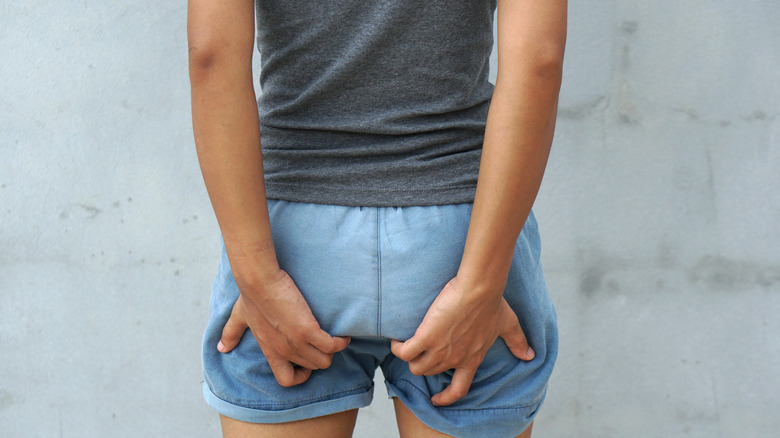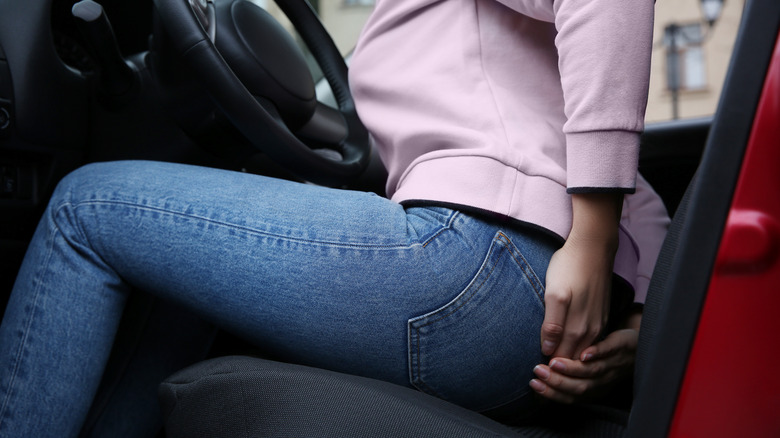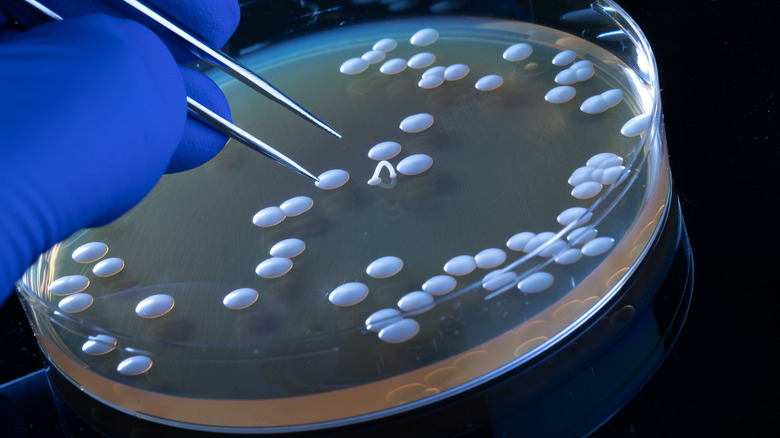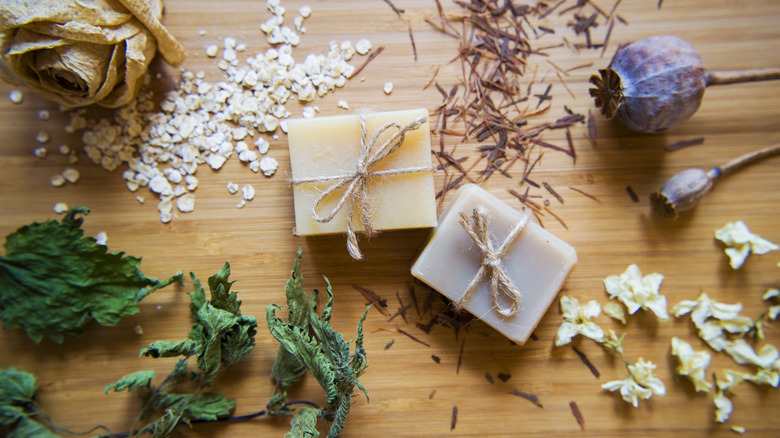
Dealing with an itchy backside is anything but fun. You may have trouble working out, using the bathroom, or wearing your favorite underwear — or any underwear for that matter. Everyday activities like walking, cycling, or jogging can literally become a pain in the butt!
The causes of anal itching, or pruritus ani, can range from eczema or dermatitis to yeast infections. Some types of underwear, for instance, may trigger allergic skin reactions or textile dermatitis. These problems are often associated with the synthetic fibers, textile dyes, or fabric additives used in clothing and undergarments, explains DermNet New Zealand. Cotton, silk, and other natural fabrics can irritate your skin, too, but synthetic fibers are usually to blame.
Most conditions responsible for pruritus ani have non-specific symptoms, which is why it’s important to consult a doctor. But first, try to figure out what other problems you may be experiencing. A yeast infection, for example, may cause skin irritation, redness, pain, or a burning sensation in addition to itching, notes Healthline. Take note of your symptoms for a couple of days and then reach out to a healthcare provider.
Hemorrhoids may cause an itchy bottom

Harvard Medical School reports that about half of the population will experience anal pain, itching, lumps, and other symptoms of hemorrhoids at some point in their lives. These problems occur when the veins located in the rectum become swollen and increase in size.
Internal hemorrhoids are rarely painful but may still cause itching and bleeding. Most times, you can’t see or feel them. External hemorrhoids, on the other hand, tend to cause severe pain and discomfort. Other conditions, such as anal fissures, tears, or abscesses, have similar symptoms, explains Dr. Bartley Pickron, (per the University of Utah).
As a rule of thumb, you should see a doctor if you experience bleeding, recurrent pain, or itchiness that doesn’t go away. A high-fiber diet or fiber supplements, regular exercise, and sitz baths may help reduce hemorrhoid symptoms, says Harvard Medical School. You may also use an over-the-counter cream or suppositories. If all else fails, contact a proctologist or ask your doctor to recommend one.
Anal itching could be due to an infection

Pruritus ani is due to an underlying condition in 75% of cases, according to a 2008 review in the Annals of the Royal College of Surgeons of England. Fungal infections account for about 15% of all cases and are often triggered by Candida albicans. Staphylococcus aureus and other bacteria may cause infections, too. In such cases, the itchiness can last for a year or longer.
Some infections are sexually transmitted, while others may develop following exposure to fungi or bacteria. Anal yeast infections, for example, are due to Candida overgrowth. This condition is more likely to affect people with diabetes, obesity, or diseases affecting the immune system, notes Healthline. Repeated courses of antibiotics can lead to Candida overgrowth, too. These medications disrupt the gut flora, leaving your body vulnerable to infection, (via Fungal Disease in Britain and the United States).
Note that Candida and other fungi thrive in warm, moist environments, says Dr. Melissa Conrad Stöppler, (per eMedicineHealth). That’s why health experts recommend wearing loose clothing and undergarments made from breathable fabrics. However, some of these fabrics are not the best choice for workout gear, as they retain moisture.
Cotton, for instance, is breathable, but it also absorbs sweat and takes a long time to dry, (via the International Sports Sciences Association). Synthetic fabrics are often a better option for leggings, tops, and workout underwear. The downside is that they may trigger or worsen textile dermatitis, a condition that causes itchiness.
Other reasons you might have an itchy backside

An itchy backside can also be a symptom of local trauma, allergies, or skin condition. For example, some types of toilet paper irritate the skin or trigger allergies, according to the International Foundation of Gastrointestinal Disorders (IFGD). Scented bath products, such as perfumed soaps, may cause allergic reactions as well.
The IFGD recommends washing your bottom or taking a sitz bath rather than wiping. Try to avoid soap and use pH-balanced, hypoallergenic intimate hygiene products instead. Let the area dry before putting on your underwear. If you’re short on time, use fragrance-free wet toilet paper or a white, lint-free cloth. The IFGD advises against applying creams, ointments, or suppositories to the anal area, as they may contain irritants or allergens. Ointments can also trap bacteria and cause infections, warns the IFGD. However, if you must use them, first wash your bottom and then apply a thin layer of cream or ointment.
Sometimes, anal itching and discomfort have more serious causes, warns the IFGD. Crohn’s disease, for instance, may affect the anorectal area, resulting in fissures, fistulas, abscesses, swelling, or incontinence (via Clinical and Experimental Gastroenterology). Irritable bowel syndrome may cause anal discomfort, too. That’s why it’s essential to monitor your symptoms and reach out to a doctor if the itching persists. Depending on its cause, you may need to see a proctologist, a gastroenterologist, or a dermatologist.
Source: Read Full Article






